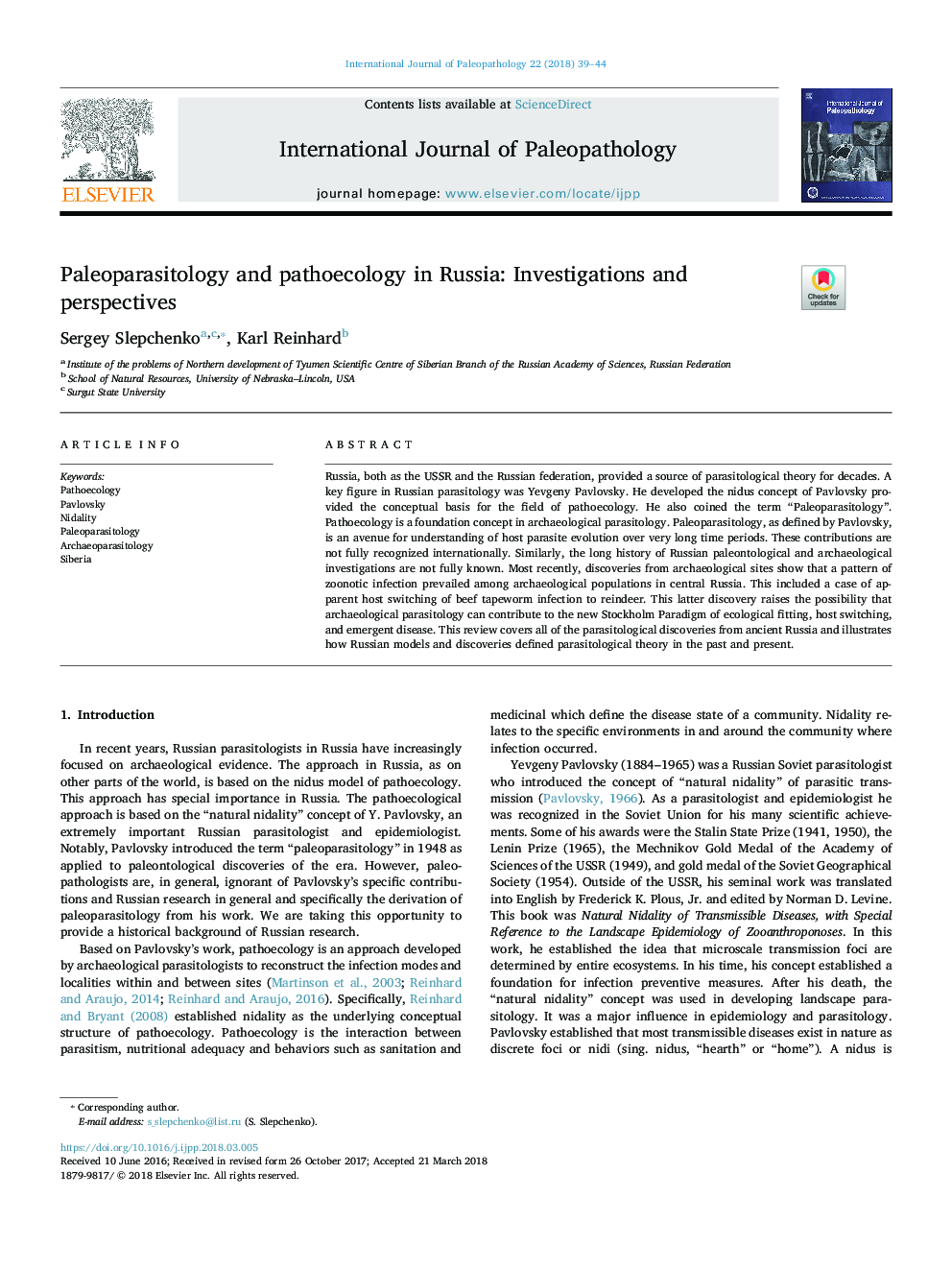| کد مقاله | کد نشریه | سال انتشار | مقاله انگلیسی | نسخه تمام متن |
|---|---|---|---|---|
| 6554752 | 1422369 | 2018 | 6 صفحه PDF | دانلود رایگان |
عنوان انگلیسی مقاله ISI
Paleoparasitology and pathoecology in Russia: Investigations and perspectives
دانلود مقاله + سفارش ترجمه
دانلود مقاله ISI انگلیسی
رایگان برای ایرانیان
کلمات کلیدی
موضوعات مرتبط
علوم زیستی و بیوفناوری
بیوشیمی، ژنتیک و زیست شناسی مولکولی
فیزیولوژی
پیش نمایش صفحه اول مقاله

چکیده انگلیسی
Russia, both as the USSR and the Russian federation, provided a source of parasitological theory for decades. A key figure in Russian parasitology was Yevgeny Pavlovsky. He developed the nidus concept of Pavlovsky provided the conceptual basis for the field of pathoecology. He also coined the term “Paleoparasitology”. Pathoecology is a foundation concept in archaeological parasitology. Paleoparasitology, as defined by Pavlovsky, is an avenue for understanding of host parasite evolution over very long time periods. These contributions are not fully recognized internationally. Similarly, the long history of Russian paleontological and archaeological investigations are not fully known. Most recently, discoveries from archaeological sites show that a pattern of zoonotic infection prevailed among archaeological populations in central Russia. This included a case of apparent host switching of beef tapeworm infection to reindeer. This latter discovery raises the possibility that archaeological parasitology can contribute to the new Stockholm Paradigm of ecological fitting, host switching, and emergent disease. This review covers all of the parasitological discoveries from ancient Russia and illustrates how Russian models and discoveries defined parasitological theory in the past and present.
ناشر
Database: Elsevier - ScienceDirect (ساینس دایرکت)
Journal: International Journal of Paleopathology - Volume 22, September 2018, Pages 39-44
Journal: International Journal of Paleopathology - Volume 22, September 2018, Pages 39-44
نویسندگان
Sergey Slepchenko, Karl Reinhard,